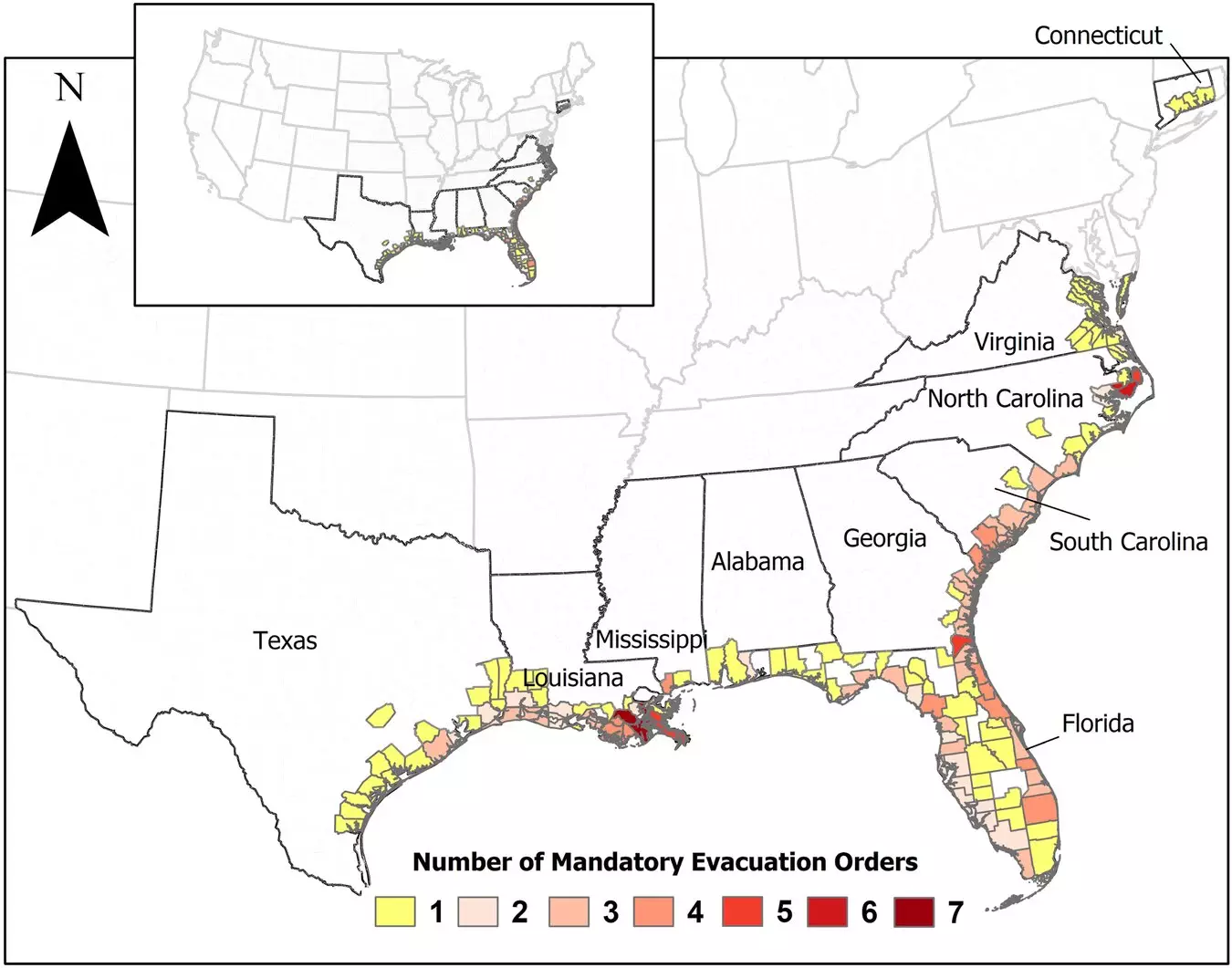Natural disasters, such as hurricanes, pose a significant threat to communities across the United States. In an effort to improve public safety and reduce loss of life, a team of researchers from the University of Virginia has developed the first-ever database of hurricane evacuation orders in the country. This database, known as the Hurricane Evacuation Order Database (HEvOD), aims to provide valuable insights into the effectiveness of evacuation policies and strategies in the face of oncoming hurricanes.
Creating the Database
The HEvOD database includes evacuation orders issued by official state and local agencies in response to hurricanes that impacted the United States between 2014 and 2022, covering a total of 25 hurricane events. The researchers meticulously gathered archival orders from various sources, including official websites, social media accounts, and news platforms. Each evacuation order included information on the type of the order (mandatory or voluntary), the announcement date and time, the effective date and time, and the targeted evacuation areas. The database also contains information on the State of Emergency declared by governors in response to the events.
Compiling the HEvOD database presented various challenges due to the complexities of evacuation laws and policies across states. The researchers found that evacuation laws and policies vary widely, with differences in legal authorities for ordering evacuations and communication methods for disseminating orders. The process of data collection and verification was challenging and time-consuming, as different platforms were used to communicate evacuation orders.
Utilizing the Database
The HEvOD database is publicly accessible through the University of Virginia’s open-access repository and website. Local and state government officials can use the database to assess the effectiveness of past evacuation orders and plan more effective strategies for future emergencies. By analyzing historical evacuation orders, emergency management officials can optimize response plans and communication strategies, enhancing public safety and community resilience. The primary goal is to facilitate a detailed analysis of evacuation strategies and procedures to identify areas for improvement and enhance policy decisions.
The researchers have already begun using the HEvOD database to address research questions on hurricane evacuation decision-making. By quantifying the effectiveness of mandatory evacuation orders and studying the relationship between orders and evacuation patterns, the team aims to update and expand the database annually after each hurricane season. Contributions and collaboration are welcomed to improve the quality and utility of the database, ensuring its relevance and effectiveness in the future.
The development of the Hurricane Evacuation Order Database is a significant advancement in understanding the effectiveness of hurricane evacuation policies. By providing valuable insights and data for researchers and practitioners, the database can help improve community resilience, policy development, and public safety in the face of oncoming hurricanes. As the database continues to grow and evolve, it has the potential to drive meaningful change and save lives during future hurricane events.


Leave a Reply